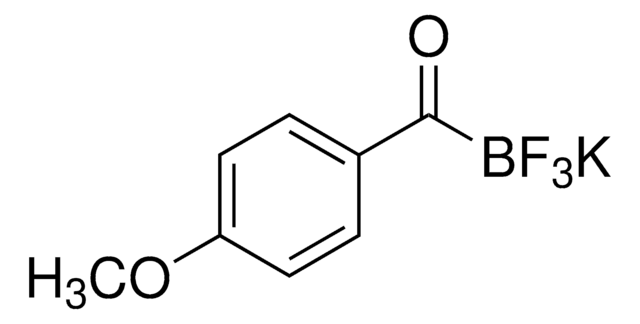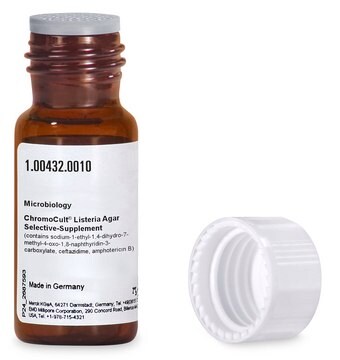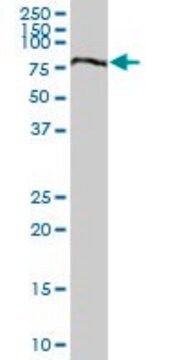07-5390
1,4-Dioxan
suitable for HPLC
Synonym(e):
Diethylenoxid, Dioxan
About This Item
Empfohlene Produkte
Dampfdichte
3 (vs air)
Dampfdruck
27 mmHg ( 20 °C)
40 mmHg ( 25 °C)
Assay
>99.7% (GC)
Form
liquid
Selbstzündungstemp.
356 °F
Expl.-Gr.
22 %
Verfügbarkeit
available only in Japan
Methode(n)
HPLC: suitable
Brechungsindex
n20/D 1.422 (lit.)
pH-Wert
6.0-8 (20 °C, 500 g/L)
bp
100-102 °C (lit.)
mp (Schmelzpunkt)
10-12 °C (lit.)
Dichte
1.034 g/mL at 25 °C (lit.)
SMILES String
C1COCCO1
InChI
1S/C4H8O2/c1-2-6-4-3-5-1/h1-4H2
InChIKey
RYHBNJHYFVUHQT-UHFFFAOYSA-N
Suchen Sie nach ähnlichen Produkten? Aufrufen Leitfaden zum Produktvergleich
Empfehlung
Signalwort
Danger
H-Sätze
Gefahreneinstufungen
Carc. 1B - Eye Irrit. 2 - Flam. Liq. 2 - STOT SE 3
Zielorgane
Respiratory system
Zusätzliche Gefahrenhinweise
Lagerklassenschlüssel
3 - Flammable liquids
WGK
WGK 3
Flammpunkt (°F)
51.8 °F - closed cup
Flammpunkt (°C)
11 °C - closed cup
Persönliche Schutzausrüstung
Eyeshields, Faceshields, Gloves, type ABEK (EN14387) respirator filter
Analysenzertifikate (COA)
Suchen Sie nach Analysenzertifikate (COA), indem Sie die Lot-/Chargennummer des Produkts eingeben. Lot- und Chargennummern sind auf dem Produktetikett hinter den Wörtern ‘Lot’ oder ‘Batch’ (Lot oder Charge) zu finden.
Besitzen Sie dieses Produkt bereits?
In der Dokumentenbibliothek finden Sie die Dokumentation zu den Produkten, die Sie kürzlich erworben haben.
Unser Team von Wissenschaftlern verfügt über Erfahrung in allen Forschungsbereichen einschließlich Life Science, Materialwissenschaften, chemischer Synthese, Chromatographie, Analytik und vielen mehr..
Setzen Sie sich mit dem technischen Dienst in Verbindung.

![Tributyl[2,2-difluoro-1-(2-methoxyethoxymethoxy)vinyl]stannane AldrichCPR](/deepweb/assets/sigmaaldrich/product/structures/354/813/f03a654f-8ece-4a23-bfb6-c7393e90802a/640/f03a654f-8ece-4a23-bfb6-c7393e90802a.png)






